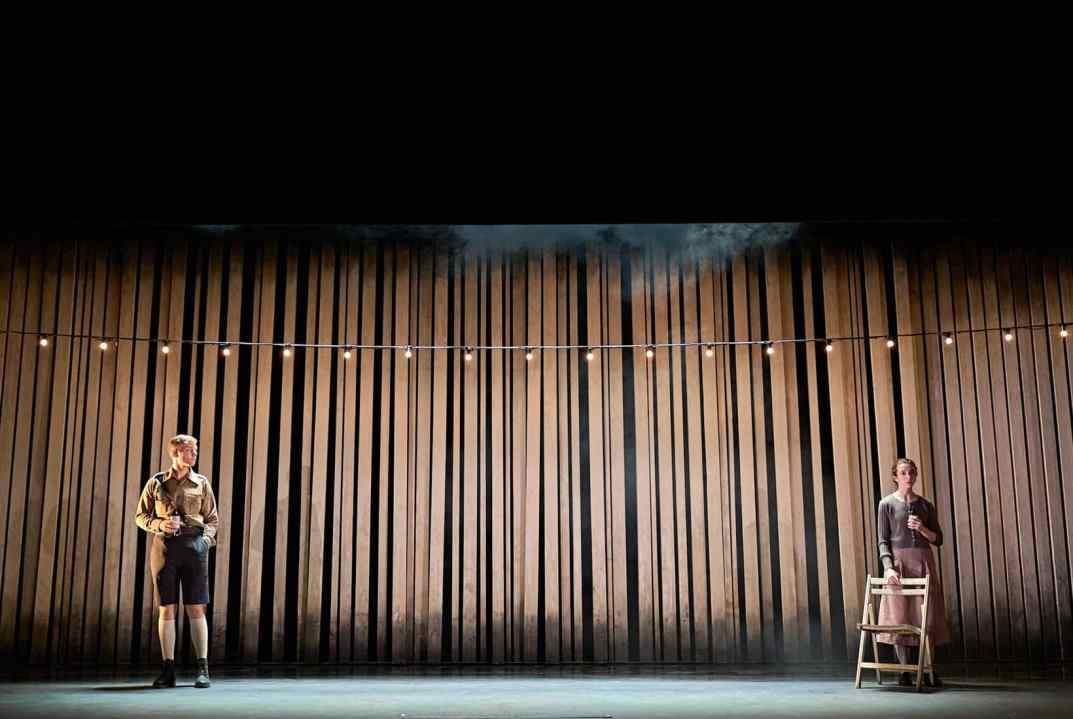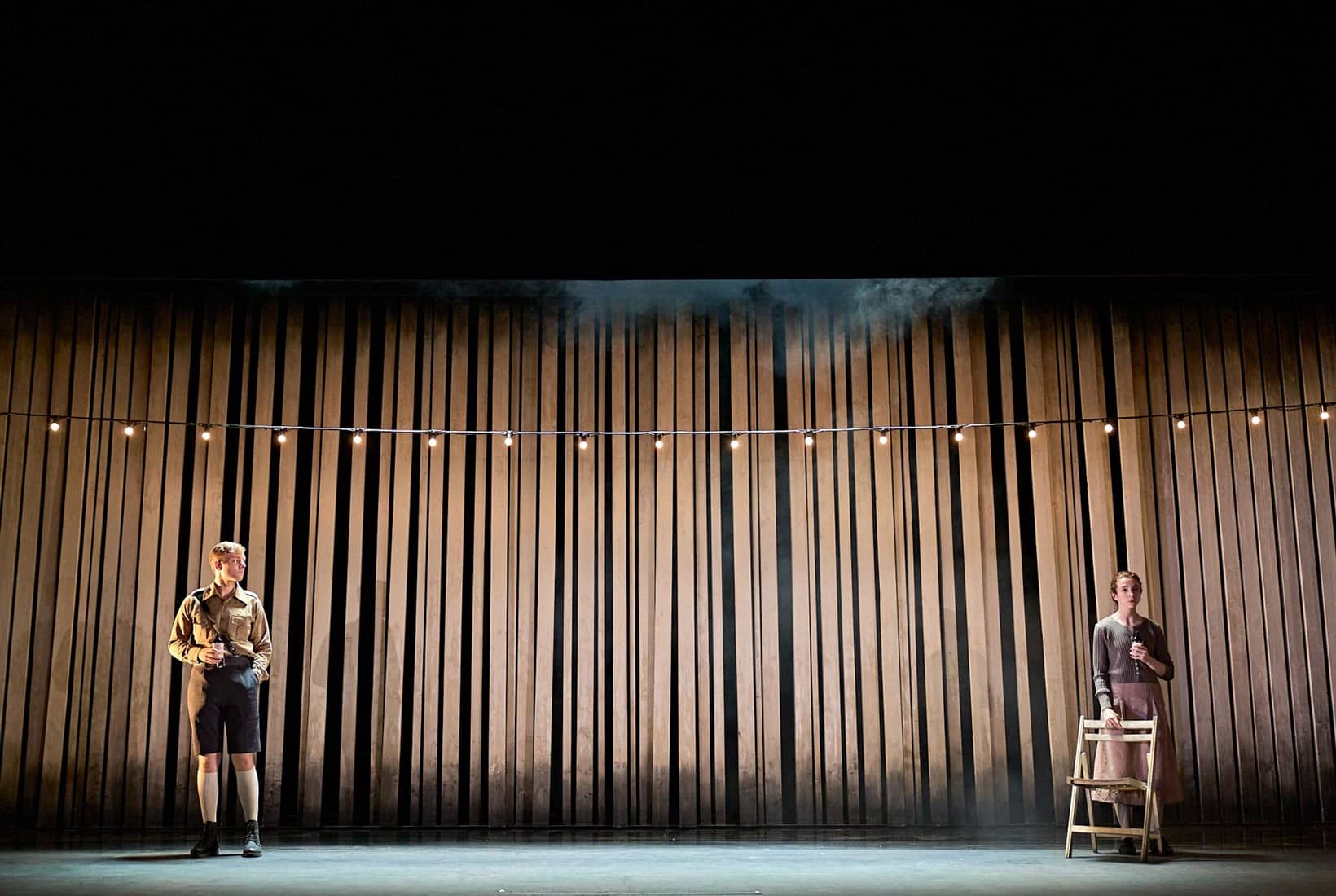Boy meets girl. Girl gets pregnant. Then the entire world collapses. That’s the story of Camp Siegfried, which is set in the late 1930s at a holiday park in Long Island where German-Americans come to enjoy the outdoor life and to celebrate their ancestral culture.
The boy is a strapping 17-year-old who chats up an awkward geeky girl with little sexual experience. Or so it seems. The boy is keen on Germany’s dynamic new chancellor but the girl finds Hitler too ‘excitable’. But when she’s invited to give a speech to the entire camp, she becomes an overnight convert and extolls the Nazi virtues of unity and patriotism. And she’s tempted to believe a rumour that the Führer himself travelled from Germany to hear her speak. The boy is considering a permanent move to the Fatherland but his dream is thrown into turmoil when the girl announces that she’s expecting a child. She visits New York for a proper diagnosis, and a chance meeting with a friendly Jewish family sets her on a different path altogether.
Every teenager and student in the country should see this play
In a sense the play is a trick and it uses historical ignorance to generate tension and irony. The characters have no idea what cataclysms are about to engulf them, and the audience is able to watch in a state of god-like foreknowledge and sympathy. That aside, the storytelling is ingenious and well-paced, and the depth and subtlety of the characters provide constant surprises. Director Katy Rudd has turned the Old Vic’s sprawling stage into a versatile and intimate space that contains dozens of different locations. Now, it’s a cosy fireside bar. Now, it’s a packed arena where stirring speeches are delivered to crowds of baying fanatics. The lighting effects by Rob Casey are done with style and panache.









Comments
Join the debate for just £1 a month
Be part of the conversation with other Spectator readers by getting your first three months for £3.
UNLOCK ACCESS Just £1 a monthAlready a subscriber? Log in